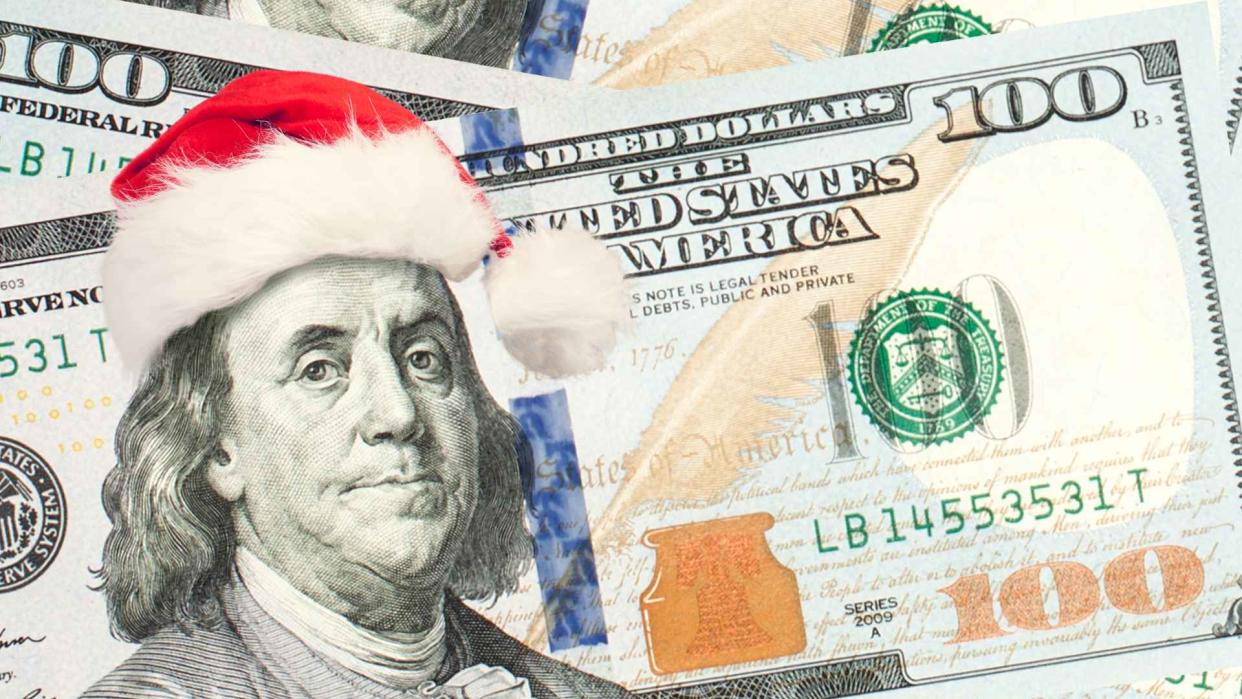I’m a Self-Made Millionaire: Here’s How Much I Save for the Holidays

The National Retail Federation reports that the average consumer expects to spend about $875 this year on gifts, decorations, food and other holiday season expenditures this year. However, millionaires have holiday budgets that are far from average.
I’m a Financial Expert: Always Buy the Cheapest Version of These 10 Things
More: 3 Things You Must Do When Your Savings Reach $50,000
While most people will enter the new year with three-figure bills hanging over their heads, members of the two-comma club can take holiday spending to a level that average earners can hardly fathom. GOBankingRates spoke with two self-made millionaires with impressive holiday funds and intelligent strategies for separating and securing them. Here’s a look at how the monied class rolls in December.
An Attorney Goes All Out on Holiday Spending
Jonathan Rosenfeld is the founder and managing attorney at Rosenfeld Injury Lawyers in Chicago. His practice focuses on representing the most vulnerable members of society and deals only with those who were seriously injured or killed in accidents.
His talents and efforts have tallied some impressive awards for his clients, including payouts of $9 million and $4.2 million for medical malpractice, $7 million and $5.2 million for motorcycle accidents, and $6.1 million and $5 million for birth injuries. Over 25 years, his firm has recovered more than $450 million for his clients nationwide, and his cut has made him a millionaire several times over — and during the holidays, it shows.
$875? How About $50K, Instead?
Success in the legal field has earned Rosenfeld a seven-figure net worth, which affords him a massive five-figure budget for his favorite time of year.
“As someone who values the spirit of the holiday season, to ensure a joyous celebration without unnecessary financial strain, I allocate a specific budget of $50,000 for holiday-related expenses, encompassing gifts, travel, hosting and other seasonal activities,” he said. “This budget is a result of thoughtful consideration of the various costs associated with the holidays, allowing me to partake in festivities without compromising my overall financial stability.”
Find Out: 7 Things the Middle Class Spends Too Much Money On
A Holiday Budget That Big Deserves Its Own Savings Account
With that kind of cash changing hands in a single month, Rosenfeld keeps things simple by segregating his holiday fund from his general accounts.
“I take a proactive approach to managing this holiday fund, and I find that a high-yield savings account is the ideal vehicle for this purpose,” he said. “The accessibility and security it provides make it convenient for covering short-term, holiday-specific needs. While I typically diversify my wealth across stocks, bonds, and real estate for long-term growth, I recognize the value of having a dedicated fund for specific occasions. This strategy not only helps in maintaining financial discipline but also ensures that I can fully embrace the holiday spirit without concerns about the financial aftermath.”
A Cleaning Supplies Magnate Bases His Budget on His Earnings
Dan Dillon built a seven-figure fortune on the shoulders of a childhood venture. At just 10 years old, the suburban Philadelphia native began working in the family commercial cleaning service business. In 2005, he used his experience and intimate industry knowledge to launch CleanItSupply.com in a small garage office. He was an early e-commerce entrepreneur who saw dollar signs online when his “peers and colleagues at the time simply thought the internet was for kids and entertainment.”
Today, CleanItSupply.com is a multi-million dollar JanSan business and Dillon is an online influencer known as Danny D on CleanIt TV, where he has produced more than 6,000 product spotlight videos. He’s now a millionaire — and he flexes his financial muscles during the holidays.
An Earning-Based Spending Plan
As an entrepreneur, Dillon doesn’t earn a steady wage with predictable bi-weekly paychecks. For business owners like him, profits fluctuate — and his end-of-year spending plan fluctuates with it.
“I have learned over the years to be strategic with my holiday spending,” he said. “I usually set aside around 5% of my earnings throughout the year specifically for holidays, which helps me cover all end-of-year expenses, including gifts, travel and hosting, without disrupting my regular financial flow.”
While his budget varies according to his annual income, for context, 5% of $1 million is $50,000 — the same as Rosenfeld’s holiday allowance to the dollar.
Protect 6 Dollars out of 10 and Put the Other 4 in Play
Also like Rosenfeld, Dillon keeps his holiday fund separate, but he splits it in two, protecting most of it with FDIC insurance and rolling the dice on the smaller share.
“This holiday-specific budget is generally divided, with 60% kept in a high-yield savings account for instant liquidity and 40% invested in low-risk stocks, which allows for potential growth but can be easily liquidated,” he said. “This practice ensures I have the needed funds while also gaining some incremental returns.”
More From GOBankingRates
This article originally appeared on GOBankingRates.com: I’m a Self-Made Millionaire: Here’s How Much I Save for the Holidays
